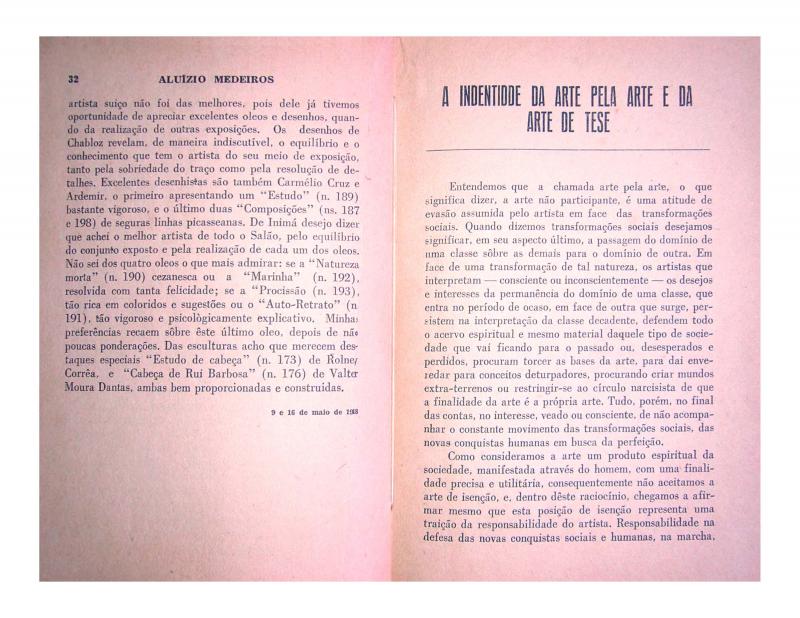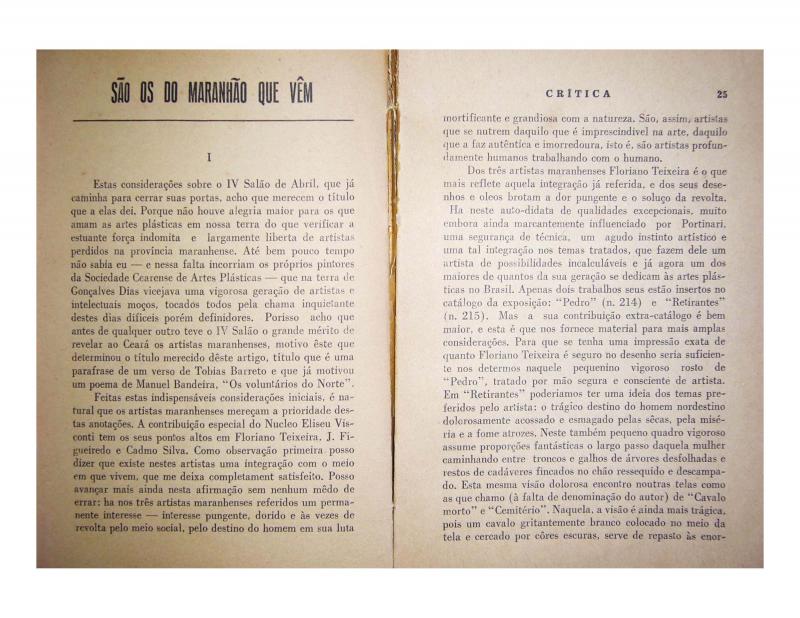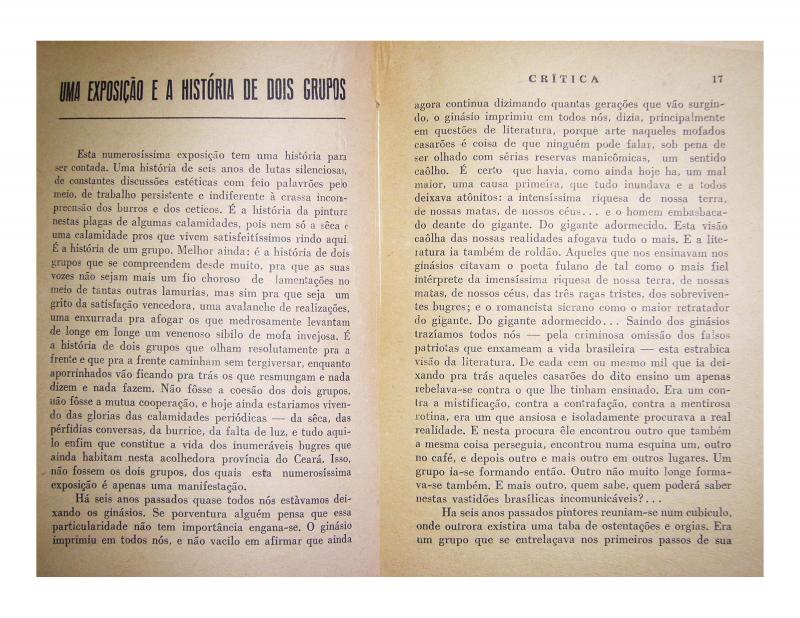This is the initial text of the book O negro na literatura e na arte. It was originally the text of a lecture given at the Teatro José de Alencar to commemorate the day when slavery was abolished in Brazil (1888). The event was organized by the newspaper O Democrata, and the text was published the following day, in 1946. Aluízio Medeiros, the author, discusses the racial and socioeconomic prejudice suffered by blacks in Brazil who were largely considered inferior to the dominant white elite. Ever since the colonial period, blacks had always been considered inferior and lacked any means for social advancement. The text notes that where there is no racial overlapping (or possible miscegenation), Brazilian blacks manage to stand out among artists and intellectuals of their own race. Ironically, where there is mixture of races, blacks who are able to express themselves do not produce black art or literature. Medeiros refers to the famous poem by Castro Alves, “O Navio Negreiro,” he mentions Macunaima, “our own hero” (1928) created by Mário de Andrade, and the poem “O Negro,” by Raul Bopp, as examples (of the scarcity of the genre). In all these cases, blacks are viewed in a literary manner, sentimentally, but never as a social class of people “who struggle tirelessly to better themselves.”



